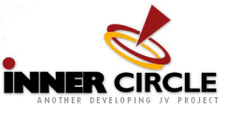Trevor writes:
Found this background story in
ITWeb's brainstorm:
ICT's top woman: living a dream - By Tracy Burrows
[Johannesburg, 1 December 2003] - Praxis co-founder and African ICT Achiever winner Mirriam Zwane had a bumpy career start, but she's living her dream now.
Mirriam Zwane is one of those tiny dynamos one tends to find leading the pack in business. Co-owner and director of IT solutions company Praxis Computing, Zwane packs more work into a week than most people accomplish in a month, yet she doesn't look anywhere near burnout. In fact, she radiates serenity.
Zwane was recently recognised for her "vast contribution to the ICT sector" when she won the African ICT Achiever: Top Woman in ICT 2003 award. She also won the Diva Africa 2003 award. Her strongest attributes - a love of training, a desire to make an impact on others and an instinct for business - are what earned her the accolades and helped her contribute to the success of Praxis Computing. That, sheer guts and hard work.
Keeping balls in the airMirriam Zwane, co-founder, PraxisNow 48, Zwane has forged ahead in the world of ICT for the past 16 years. Born and raised in limited circumstances in Soweto, she dropped out of school when she fell pregnant with her first child and only managed to complete her matric a few years later.
"My family was disappointed when I left school," says Zwane. "I was a good student, and they had hoped I'd make something of myself. At the time, I made a promise to myself to make good. And I believe I have."
In 1981, Zwane took a secretarial job at Phillips SA and was one of the few secretaries there that managed to master a complicated ordering process called "indenting" which used mainly codes for parts. Zwane then applied for a post in the IT department, training colleagues in the use of the desktop software.
"I knew I could train people," she says. "When I was a schoolgirl, I tutored my friends in maths and arithmetic and gave literacy classes to a few of my mother's neighbours."
Zwane worked as a software trainer at Phillips until 1993, at the same time running a PC literacy training facility at home in Soweto after hours. "I bought three PCs and trained people in the evenings. It wasn't easy, because by then I had four children to care for, but it was exceptionally rewarding," she says.
Later, when the Zwane family moved house, to Lombardy East, she was involved in literacy training for adults via her church.
Zwane kept adding to her workload, and still juggles her daily management, client liaison and training role at work with community work in Soweto. She is proudly involved with a food garden scheme and clothing manufacture and brickmaking projects in her old home town. Zwane also found time to complete diploma courses through Unisa and Damelin and, for balance, she takes care of household chores, maintains her garden and works out at gym.
Braving a cut-throat industryZwane and her husband Tito, an employee relations manager at Eskom, managed to put their children through a private school, which was where she met Mish Middelman, her current business partner, whose child was a schoolmate of her youngest son. "Mish and I used to joke about joining forces to launch an IT business."
Taking risks"Sometimes you have to take risks… If you don't take a chance, how will you know what you are capable of doing."
Coincidentally, Zwane left Phillips to work as a freelance consultant around the time that Middelman and Michael Haddad launched Praxis. "He asked me to come in as a training consultant and, within a couple of months, I joined permanently. There were only three of us and a receptionist at first."
Starting Praxis in a cut-throat industry was tough on all the founders. "We all had families and had to rely on our partners to carry the burden while we built the business," says Zwane.
The company now has a staff complement of 60, a long list of top clients and was this year named one of South Africa's Top 20 Non-Listed Companies and Top Three Most Progressive Companies in ICT.
"I attribute our success to many things: our excellent leader, Mish, brilliant top management and a team of outstanding staff. The company is fully representative and runs a graduate internship programme to give young people training and work experience."
Zwane - fondly called "Ma" by some of her employees - currently holds a 25 percent share in the company and hopes to increase this.
"Starting here was a risk for me," she points out. "But sometimes you have to take risks. I always say, if you don't take a chance how will you know what you're capable of doing? I've surprised myself over the years. Sometimes even scared myself. I sit back and say: How did that happen?"
Business bloodZwane says she has taken business risks on instinct and because she feels she has nothing to lose. Besides which, she has entrepreneurial genes. Her father, hospitalised with TB for many years, made shoes for sale while in hospital, to help pay his children's school fees. Her mother, left as the major breadwinner for eight children, opened a crèche with a few local women and taught her children "to make do" with what they had. "My mother taught me values like resilience and integrity, and these shape my approach to business," she says.
Zwane isn't fazed by her exceptionally busy life. "I don't feel close to burnout," she says, "but I do look forward to Sundays, and Wednesday evenings, when I go to church to 'recharge'. Sunday is normally free for 'chill time' with my family - especially my two youngest children."
Zwane finds it difficult to list her aspirations and goals. "I'm already living my dream," she says. "If there is anything I wish for, it's that people will look back on my life and say I made something from nothing, that I impacted the lives of South Africans."




